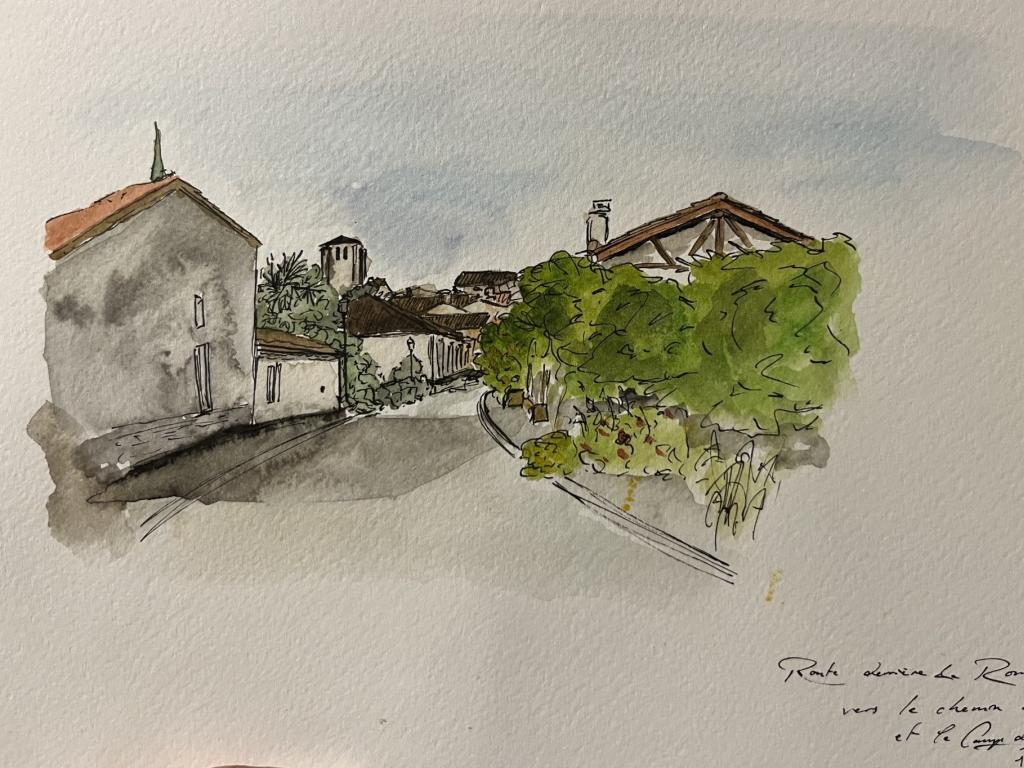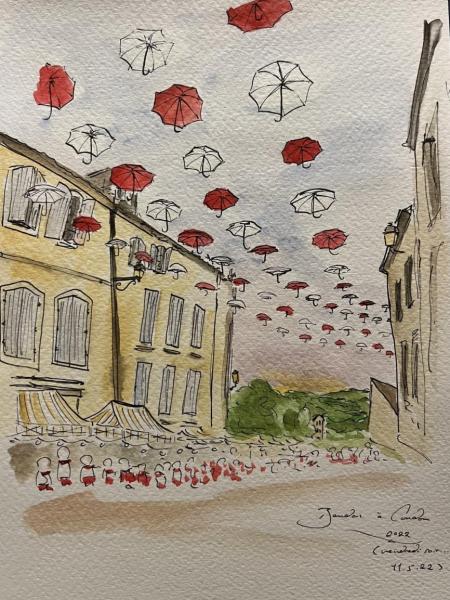
I lived for four months in a botanical garden in the south-west of France, in the département of the Gers and in a village of 500 inhabitants. Life in the botanical garden was a happy one – the family had built a cottage on-site and hosted student helpers all through the season, and we dined on fresh vegetables, spent the day working at the salon de thé, and the mornings wandering around the village to get to know the villagers (a task very quickly accomplished in a village as little as this one). It made a nice change from the horrors of the métropole during a six-month period in Paris, which these bucolic months bookended.
I wrote some of the impressions of my year abroad. Here are some lines I penned last October about daily life in the country and to which I gave the title ‘Gentlemen of the Country, Unite!’
The Gascons decorate the village with their café du matin and during their long pause du midi. From the small clusters with their petits cafés outside the restaurant in the morning, to the small crowds that begin to form at the beginning of the service du midi, the village sees the day go by in waves of gastronomic delight, powered by the slow regional pulse that keeps alive and steady the appetite of this corner of the countryside. The Gascons are a particular breed, above all in their manner of conversation. A certain tenacity marks mealtime conversation, from which nothing can distract and none can interrupt. For once the men and women are engaged in discussion, the meal is sure to arrive and sit there untouched until it becomes stone cold. At a family dinner table, one will watch, baffled and somewhat frustrated, as a running dialogue engages a pair of interlocutors to the extent that no amount of pleading and berating from the mother will succeed in drawing any attention to the bowls of salad and potatoes that had been passed around, caught in the traffic of the conversation. One might ask for the bread to be passed at least, or a morceau de fromage, s’il te plaît, but if the person one is asking is engaged in discussion, one would do better to reach rudely across the table oneself, else one might as well be kept waiting until the next meal.
Aside from this single-minded tendency to conversation, the Gascons will often be found wholly absorbed in their thoughts, a certain dreaminess in the gaze as they wander across the village or into the fields, or stand in the sun on the path just outside their homes… But it will be a thought about the species of bird that passed some days ago, or the order in which to plant a new set of flowers, or perhaps concerns over the coypu spotted in the lake yesterday, and the lonely male swan in danger… A bonjour will slip their minds as they pass a familiar stranger at the village restaurant, but moments later, breaking from their bubble of thought, they will retrace their steps to apologise profusely for their absence of mind (for the exchange of bonjour is of utmost importance to the Gascon).

Finally, a small but curious point, one will observe that the Gascons will enjoy repeating their words and phrases, as a means of clarifying, or simply to savour the thought that just passed. Ça ne risque pas de durer, le soleil, non, il faut en profiter… oui, il faut en profiter… There was something in the air, the people were behaving oddly, ça sera le vent d’autan, ça… ça, c’est le vent d’autan, c’est sûr… Look at all the swallows in the air - c’est un orage qui arrive, oui, c’est pour ça qu’on voit tellement d’hirondelles… c’est un orage qui arrive, oui, c’est pour ça… Oui, c’est sûr.
So much for the mannerisms of the old Gascons. The bucolic aesthetic of the gentlemen of the countryside cannot go unmentioned – the paysans on their midday break, hands still stained in the soil of the morning’s work, nails dark and dusty, faces ruddy and clothes earthy. And with their arrival at the dining table, a gust - the wind of the land - is introduced into the kitchen, with them they have brought the entire world inside, quietly invited their extra guests to the table. On passe à table! Here enters the rustic air, the men engage in conversation over the new diseases rampant this year amongst the bees with a solemn but gentle gaze as they take their midday rosé as apéro. They are not the rowdy crowd that one finds in the cities, although they appear coarse with the foundations of the earth over their workwear; their rough and worn hands are nimble, knowledgeable, and instead of the ostentatious gentleman’s glove, they wear the glove of the soil that cures our earth, tending the fruit of the land and fostering the harmonies of the soul. Chapeau, to these gentlemen, and give them their bread! Only halfway through the day’s work, they will need their coffee, their petit dessert, and their clope après-repas..